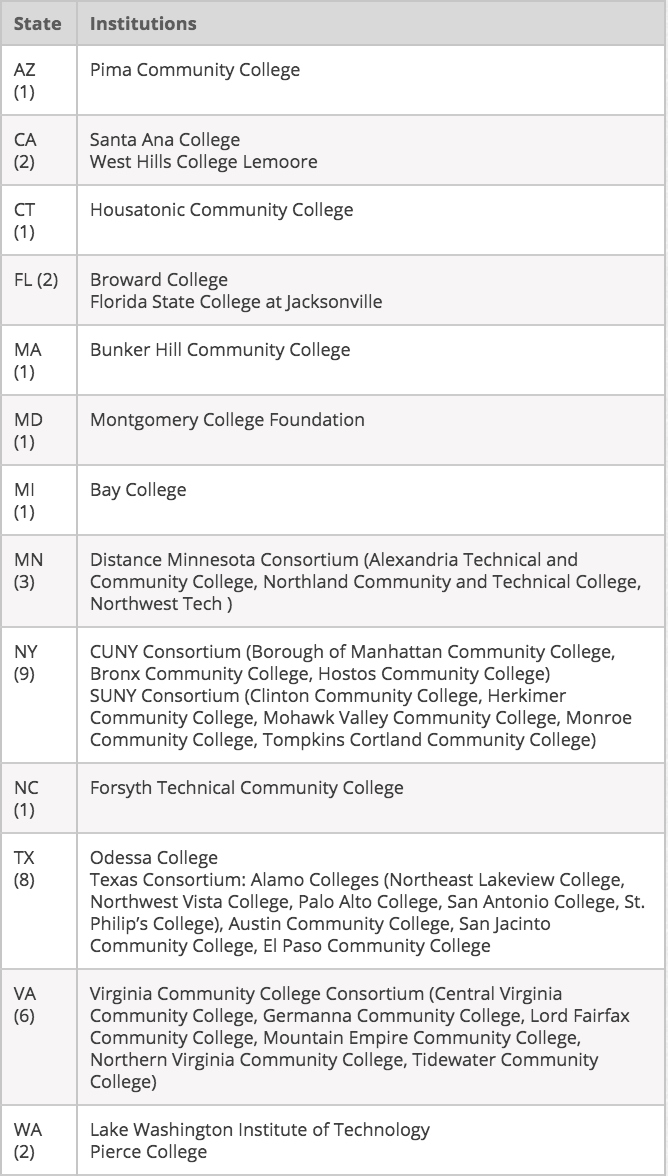Education is expensive enough, without students having to fork out hundreds of dollars each semester for the latest textbooks - and over the past decade, textbook prices in the US have risen by a ridiculous 82 percent.
Now an education advocacy group is finally doing something about it, by rolling out an initiative that will allow 38 community colleges in the US to trade their textbooks for open-source materials - a move that could save students up to US$1,300 each year.
The new initiative comes from Maryland-based education reform group, Achieving the Dream, who have given US$9.8 million in grant money to 38 community colleges across 13 states.
That money will allow the colleges to cover the cost of transitioning from textbooks to open-source learning material, which students can then access, download, or print for free.
Half of the colleges selected for the grants already use free learning materials in some of their courses, Achieving the Dream admits, but they'll now be able to put together online resources for even more degrees.
And while that might not sound like a big deal - after all, students still have to pay for tuition - education experts think it could be the difference between students completing their degrees and dropping out.
In fact, a recent study showed that 60 percent of students who don't complete college said that textbooks were a financial barrier for them. And that's incredibly frustrating when there are so many great, freely available education resources out there online.
"The cost of textbooks is the biggest rip-off in higher education," Glen Dubois, chancellor of the Virginia Community College System, which is involved in the new initiative, told The Washington Post. "Too many of our students show up, they enrol and start the first week without a textbook, and that puts them behind the eight ball on the college success measure."
MIT in Cambridge is already leading the way in this area, with their OpenCourseWare program, which was launched back in 2001 and put ALL of the education materials from the college's undergraduate and postgrad courses freely available online, for anyone in the world to download - including textbooks written by MIT professors.
Those resources have now been used by more than 200 million people around the world - which is pretty incredible when you think of how many people's lives could be changed by that knowledge.
But for smaller organisations, such as community colleges, it's often difficult to put these kind of programs into action, which is why grants such as this one are so important.
"This initiative will help further transform teaching and learning in the nation's community colleges," said Karen A. Stout, CEO of Achieving the Dream. "Extensive use of OER [open educational resources] will enable students to have access to more dynamic learning tools and a richer academic experience at a cost that will help more students complete their studies."
For now, the initiative is focussing on replacing the textbooks in all required courses for degrees in business administration, general education, computer science, and social science - but hopefully more degrees will follow (regular science, anyone?)
The schools will also be uploading all the open-source material created for their courses, so that anyone, anywhere in the world, can access them.
But it's not just textbooks that we need to cut the cost of in order to make knowledge more accessible. Journal publishers have also been scrutinised over the past few years for the ridiculously high fees they charge people to view even a single article - something that's hard to stomach when you realise that the majority of the research published in these journals is funded by tax payer dollars.
In response, Europe has announced that it's working to make all its research papers freely available by 2020. In the meantime, illegal sites such as Sci-Hub are now appearing online, offering free and immediate access to millions of journal articles - kind of like the pirate bay of science, but faster.
Some scientists are even choosing to bypass the journal publishers altogether, and are putting their work up on pre-print sites such as arXiv.org and bioRxiv for the world to see before submitting it for peer review.
We've still got a long way to go, but these are all big steps towards a world where knowledge is freely available to anyone, no matter who they are, or how much money they have. And that's a pretty incredible goal.
The next thing to tackle will be the rising cost of college tuition, but for now, saving a few thousand dollars on textbooks will hopefully be enough to help students stay in school.
"In an era of tuition increase after tuition increase, at least … we can point to a solid way we have helped lower the cost of higher education," said Dubois, who reports that course completion rates in community colleges have gone up since they started using open education resources.
"We're pleased to be a part of this consortium of colleges and want to keep taking OER to the next level."
You can see the full list of community colleges involved below:

